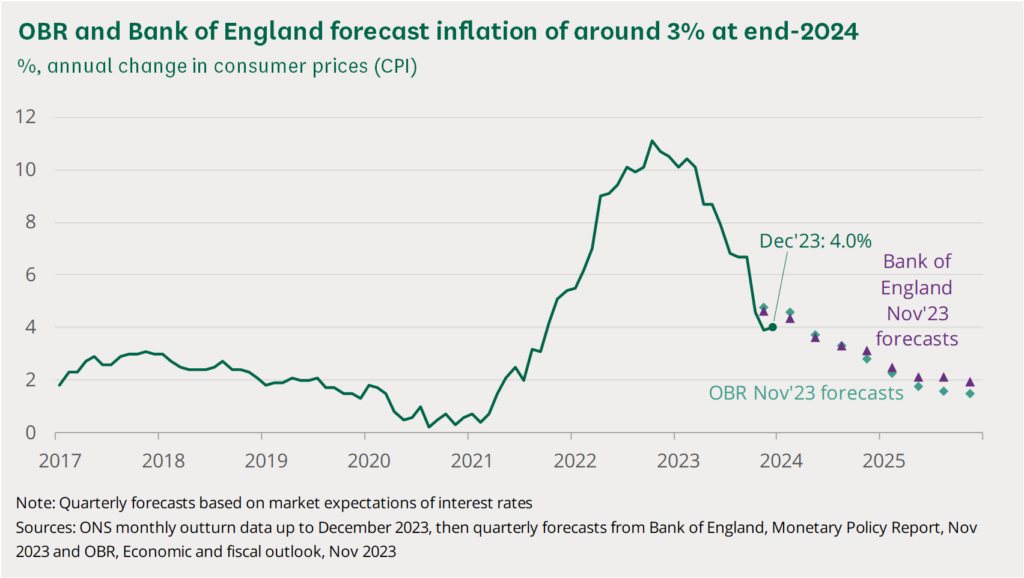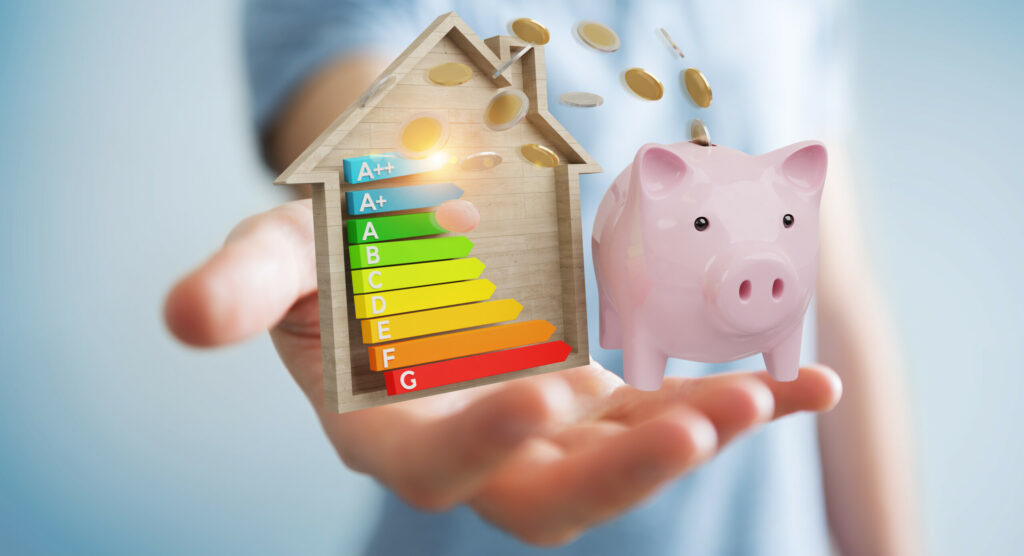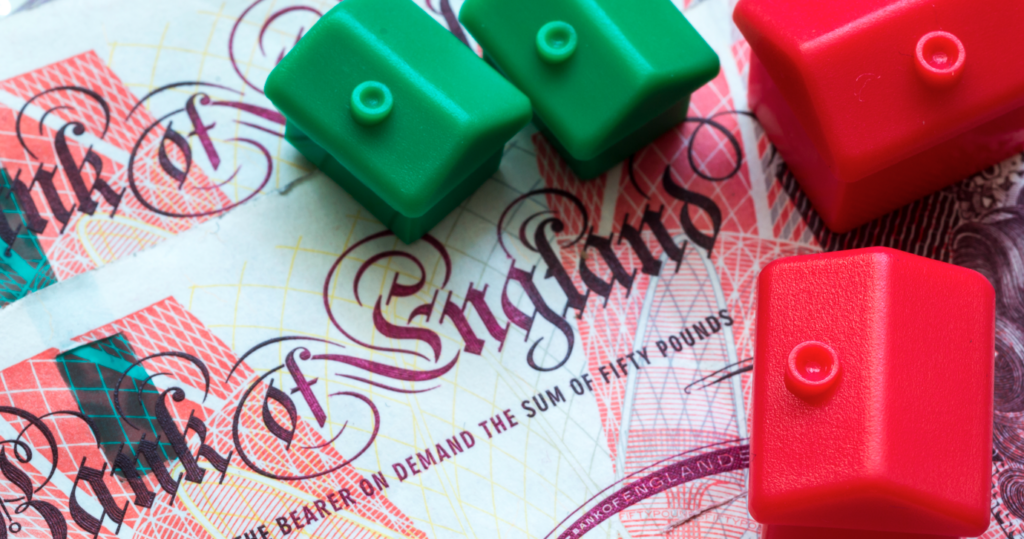In a surprising turn of events, the potential reshaping of the real estate landscape is looming as the UK economy teeters on the edge of a significant boost. Easing inflation is playing a big role in this. This development is good news for house prices, as the relationship between economic indicators and the housing market comes into play. Recent analysis suggests that as inflationary pressures ease, property values may see a positive impact. In this blog post, we will explore insights from The Telegraph’s recent article, looking at how the falling inflation could contribute to a flourishing housing market and an overall economic upturn.
Key Takeaways
- Great news! Inflation easing brings prosperity and makes housing more affordable.
- Slower inflation means smoother moves in the housing market and improved buying power.
- Rising house prices based on expert analysis and historical indicators.
- Inflation fall leads to a captivating economic domino display, potential property price hikes, and growth.
The Link Between Inflation and House Prices
Lower inflation may lead to higher house prices, as it improves affordability and stimulates demand in the housing market. Additionally, when inflation is high, people’s purchasing power decreases, causing interest rates to rise. Consequently, mortgages become more expensive, which discourages potential home buyers.
Boost to Consumer Confidence
The analysis reveals an important point: when inflation eases, it can increase consumer confidence. As the cost of living becomes more manageable, people and families may have more money to spend. This could lead to increased spending, including investing in real estate. Additionally, the positive outlook could create a good environment for home buyers, increasing demand and potentially raising house prices.
Mortgage Affordability and Market Dynamics
When inflation eases, central banks usually choose to keep interest rates lower. As a result, mortgages become more affordable, allowing a greater number of people to buy homes. Consequently, increased competition arises, potentially causing a rise in property values. Sellers benefit from the high demand, thereby creating a dynamic real estate market.
Impact on the Economy
A thriving housing market not only helps homeowners and potential buyers, but it also has wider impacts on the economy. The real estate sector plays a vital role in driving economic growth. Positive trends in the housing market lead to more construction, job creation, and benefits for industries related to home ownership. Additionally, a strong housing market can help build a stronger and more resilient economy.
Considerations for Home Buyers and Investors
While lower inflation and a flourishing housing market may seem exciting, it is crucial for prospective home buyers and investors alike to exercise caution and prudence in their decision-making process. Market conditions can be influenced by multiple factors, and individual circumstances vary greatly. Therefore, individuals intending to purchase homes should carefully consider their financial situation and seek guidance from financial advisors to ensure they make wise choices.
The Telegraph’s analysis offers valuable insights on how easing inflation can boost the economy and impact the housing market. Furthermore, the relationship between inflation, interest rates, and consumer confidence significantly affects the real estate market. As the economy gains momentum, exciting opportunities await home buyers and investors alike. Therefore, staying informed about these changes in the real estate world is important.
FAQ’s
How does easing inflation impact the housing market?
When inflation decreases, it usually has a positive impact on the housing market. Firstly, as inflation goes down, borrowing costs often go down too, leading to lower mortgage interest rates. This can make it easier and more affordable for potential buyers to own a home, which boosts demand in the housing market. Additionally, lower inflation can help create economic stability, making home buyers and investors feel more confident.
What role do interest rates play in the relationship between inflation and the housing market?
Interest rates play a crucial role in connecting inflation and the housing market. When inflation is high, central banks may raise interest rates to curb it. Conversely, when inflation eases, central banks might lower interest rates to stimulate economic activity. Lower interest rates can make borrowing more attractive, leading to increased demand for homes and potentially driving up property values.
How does easing inflation impact homeowners and mortgage holders?
For existing homeowners and mortgage holders, easing inflation can bring relief in the form of potentially lower mortgage interest rates. This may result in reduced monthly mortgage payments, freeing up funds for other expenditures or savings. Additionally, as property values may see positive trends in a lower inflation environment, homeowners may experience appreciation in the value of their properties.
Are there any potential challenges associated with easing inflation and its impact on the housing market?
While easing inflation generally has positive effects on the housing market, there can be challenges. Rapidly declining inflation might signal broader economic issues, potentially impacting job security and income levels. Additionally, if the housing market experiences a sudden surge in demand due to lower interest rates, it could lead to increased competition among buyers, potentially driving up home prices and creating affordability challenges for some segments of the population. Monitoring these dynamics is crucial for policymakers and market participants alike.
UK’s Latest Property Trends from Rightmove (House Price Index)











